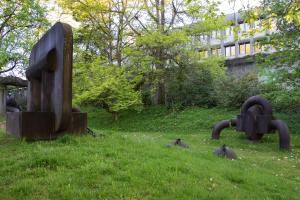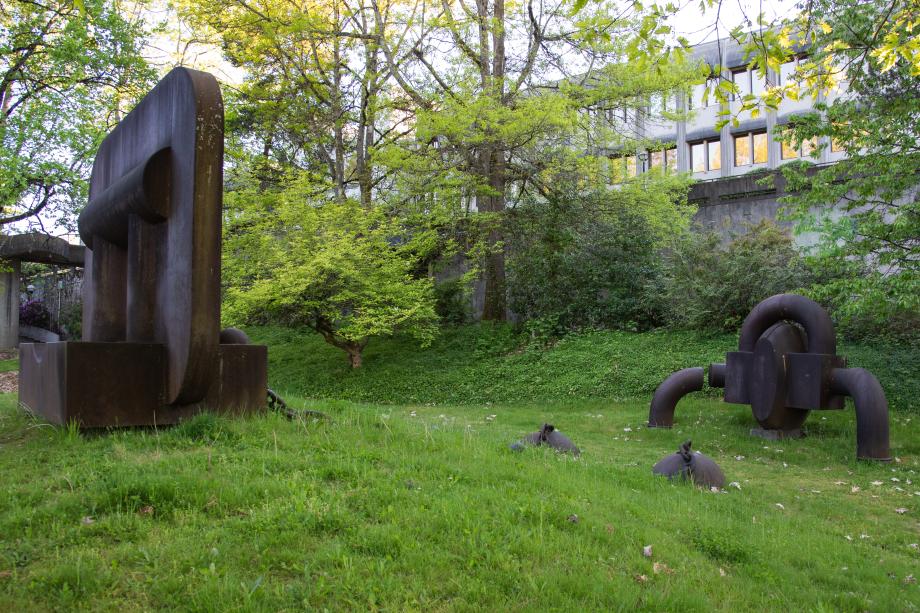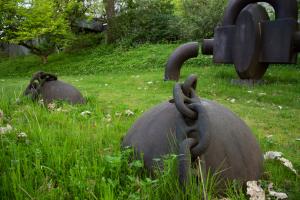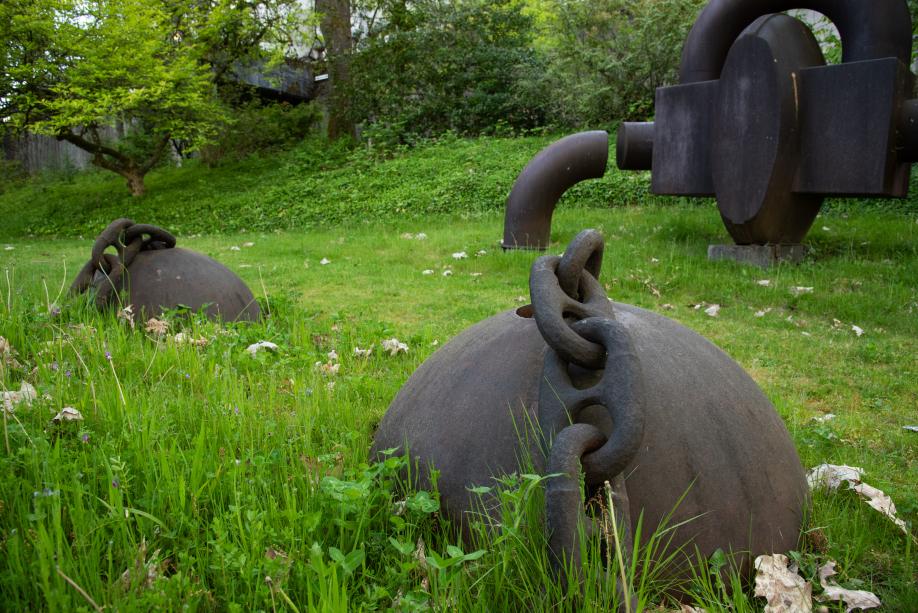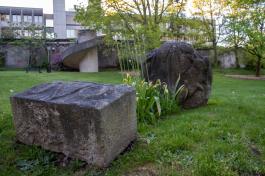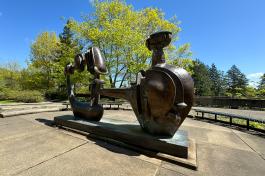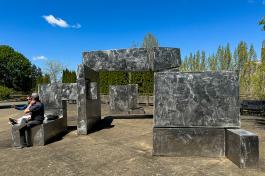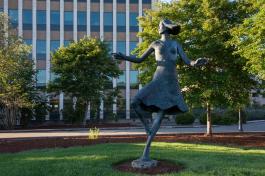Boiler Works
Tom Jay was inspired by ancient landscapes of the Greek ruins and the Stonehenge when he created Boiler Works. This piece is located on the East lower lawn of the Transportation Building.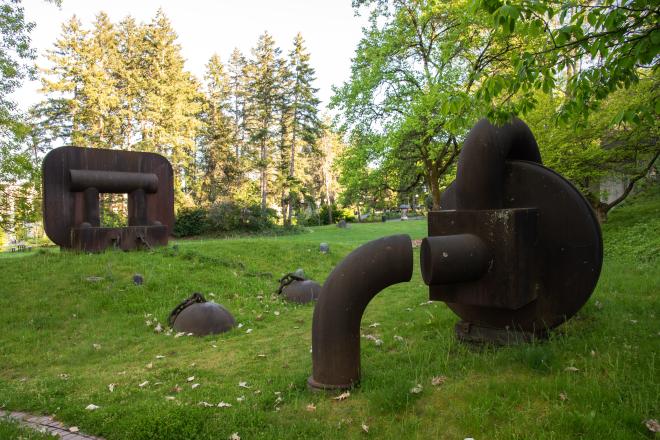
About the Boiler Works
This sculpture features two large steel forms separated by a space, representing the earth's sacredness. Chains attached to large steel bulbs buried in the ground represent how our sense of what is sacred is connected to the wealth of the earth and our responsibility to nature. The open space also has bronze "teeth," or sprouts to further emphasize our connection to the earth, referencing old myths that view the world as a dragon.
History
This impressive steel and bronze piece was created using one percent of the total construction costs for the East Capitol Campus, which was built between 1961 and 1976. Two ‘interest node’ pieces were commissioned for a park near the Transportation Building. A selection committee (including a sculptor, museum curator, and landscape architect) chose Jay’s Boiler Works as one of the pieces.
The Capitol Campus commission was the largest that Jay—a recent graduate of the University of Washington’s Masters of Fine Arts program at the time—had ever done. He designed the nine pieces of the statue (the largest being 8 1/2 feet by 12 feet) to “be accessible to people so that they can become involved both physically and socially.”


